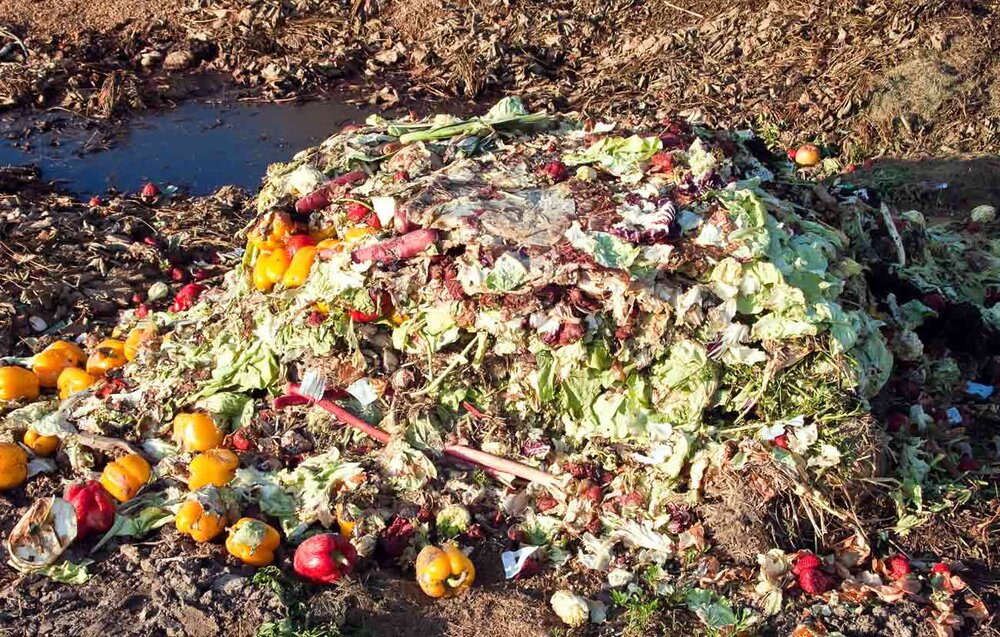Annual food waste at 35m tons in Iran

TEHRAN – Iran is among the world’s countries producing the highest amount of food waste, estimated at 35 million tons, worth $15 billion.
World Food Day is observed annually on October 16 to highlight the millions of people worldwide who cannot afford a healthy diet and the need for regular access to nutritious food. The theme for 2022 is “Leave NO ONE behind”.
World Food Day 2022 is being marked in a year with multiple global challenges, including the COVID-19 pandemic, conflict, climate change, rising prices, and international tensions. All of this is affecting global food security.
It should be noted that food, like air and water, is one of the most basic needs of humans and all living creatures, and its role in the prevention and treatment of diseases is undeniable.
According to the UN report, the number of people suffering from hunger has increased by 46 million compared to last year and reached 828 million. Therefore, the world is moving away from the goal of ending hunger, food insecurity, and malnutrition by 2030.
Food security is one of the criteria of human development and the main goal of every country. Food security is established when all people have physical and economic access at all times to sufficient, safe, and nutritious food that meets their nutritional needs for an active and healthy life, Jalaleddin Razaz, the president of the Iran Nutrition Association, said.
Household income is one of the important factors in ensuring food security in a social system. At the same time, another important factor is the taste and nutritional knowledge of families in how to allocate funds to prepare the best available food and how to divide food among the family, he added.
In Iran, the need for internal and external organizational coordination is felt more than ever at this time, he stated, adding, considering the coronavirus, the inhumane sanctions, the difficult and complex economic conditions in the country, and inflation, can cause a serious crisis.
One of the solutions to deal with the problems of food security, especially the vulnerable groups, is the preparation and distribution of food baskets instead of subsidies and cash payments for low-income families, the implementation of which requires the cooperation of officials, he suggested.
Another very important point that can play an essential role in preventing food insecurity is addressing food waste in order to prevent this waste.
It should be noted that economically, food waste causes the loss of national resources such as energy, water, and land, and from an environmental point of view, food waste and losses cause a lot of damage, including water pollution and the release of greenhouse gases.
Research has shown that the changes that occur in societies, such as increasing urbanization, changing people's eating habits, and increasing global trade, cause an increase in food waste.
According to the report of the World Food and Agriculture Organization (FAO), every day, 134 kilocalories of food are wasted per person in Iran. This amount of food waste has placed Iran among the first countries in the world producing food waste.
Accordingly, the annual food waste in Iran is equivalent to 35 million tons with an approximate value of $15 billion. Meanwhile, in the European Union with 27 member countries, only 9 million tons of food goes to waste.
Fruit, bread, and vegetables constitute the most food waste in Iran. FAO organization suggests reducing food waste to optimal use of excess food, preventing throwing away of fruits and vegetables, preparing compote, jam, and marmalade with excess fruits and dry vegetables, preparing food in the amount needed by the family, the proper storage of vegetables and the use of all parts, the correct way to buy and store bread, and the separation of dry and wet waste.
Food safety deals with the health and hygiene of food. In fact, food safety means ensuring that the food does not get microbial, chemical, or physical contamination during production, transportation, storage, cooking, and consumption and does not cause illness to consumers.
Today, food insecurity has grown significantly with the expansion of technologies, the use of additives, pesticides, antibiotics, and hormones in food production in developing countries, which has led to undeniable negative effects on human health, he explained.
Governments play a key role by monitoring and intervening in food matters. Of course, people as food consumers can play an important role in preventing food insecurity. This problem mainly appears when buying food. For example, measures such as checking the standard signs and nutritional labels on food products, carefulness of the number of calories in foods and their ingredients, and paying attention to the amount of fat, fiber, etc. in food should be taken into consideration, Razaz said.
FB/MG
